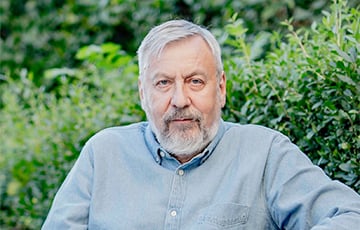Hearings On Belarusian Political Prisoners Held In US Congress
3- 14.06.2024, 10:03
- 2,658

Specific cases were considered, including the situation with Palina Sharenda-Panasiuk.
On June 13, hearings on the situation with Belarusian political prisoners were held in Washington.
The hearing explored the root causes of political imprisonment, examined specific cases of concern, and identified strategies for promoting accountability, Radio Svaboda reports.
Also, the hearing aimed to galvanize domestic and international attention and action to address this pressing issue. It was also to look at US and global strategies to reaffirm collective resolve to safeguard the rights and dignity of all individuals, regardless of their political beliefs, civic activism, or other affiliations, states the website of the US Commission on Security and Cooperation in Europe (the Helsinki Commission).
The hearings featured the following speakers:
Sviatlana Tsikhanouskaya;
Þórhildur Sunna Ævarsdóttir, the General Rapporteur for Political Prisoners of the Council of Europe;
Annie Wilcox Boyajian, Vice President of Policy and Advocacy at Freedom House.
In her speech, Sviatlana Tsikhanouskaya said that today’s Belarus reminded very much of a huge prison which the Lukashenka regime had turned it into. She recalled the advertisement video streamed by the KGB on YouTube, containing the propaganda of political persecution. The Belarusian politician has also mentioned the incommunicado regime, under which many famous political prisoners are now living, including her husband Siarhei Tsikhanouski. She has said her children keep writing letters to their father, never getting a response. There has been no information from Ihar Losik, Maksim Znak, Viktar Babaryka, and others either.
Tsikhanouskaya has also reminded society from the high stand in Washington that many people are held behind bars under political reasons regardless of their serious health issues. Even speaking the Belarusian language is dangerous.
Tsikhanouskaya has also voiced her pleas to the American politicians:
“Put pressure on the regime to release political prisoners. Increase assistance to Belarusian civil society, human rights defenders, and families of the repressed.
We must bring perpetrators to justice. Judges, prosecutors, administrators of colonies, propagandists, Lukashenka and all his cronies. They must know that every crime will be documented.
Adopt the Belarus Democracy Act, which has been introduced to the House and Senate. Appoint a special envoy to Belarus. We need the voice of the US government keeping Belarus high on the agenda. Belarusians need US leadership to help release political prisoners.”
“Donating even 5 euros for the needs of the Ukrainian army may land you in prison for 5 years, and for speaking Belarusian and supporting Belarusian publishing houses one may face problems and prison,” Tsikhanouskaya added.
Answering the questions, Sviatlana Tsikhanouskaya said that the Lukashenka regime is taking revenge on Belarusians for their active civil position. She reminded the audience about Palina Sharenda-Panasiuk, propaganda videos, the incommunicado regime, other abuses of many political prisoners and the persecution of Belarusians.
Þórhildur Sunna Ævarsdóttir reminded the present of the benefits of the Magnitsky Act, and stated that she believed that the continuation of sanctions would help the democratic process. In addition, she reminded that a number of people who helped Putin's regime in the Kremlin were still not included in the list of personal sanctions.
Annie Wilcox Boyajian listed the countries where there are political prisoners: Turkmenistan, Belarus, Azerbaijan, Uzbekistan, Turkey, Russia, and others.










